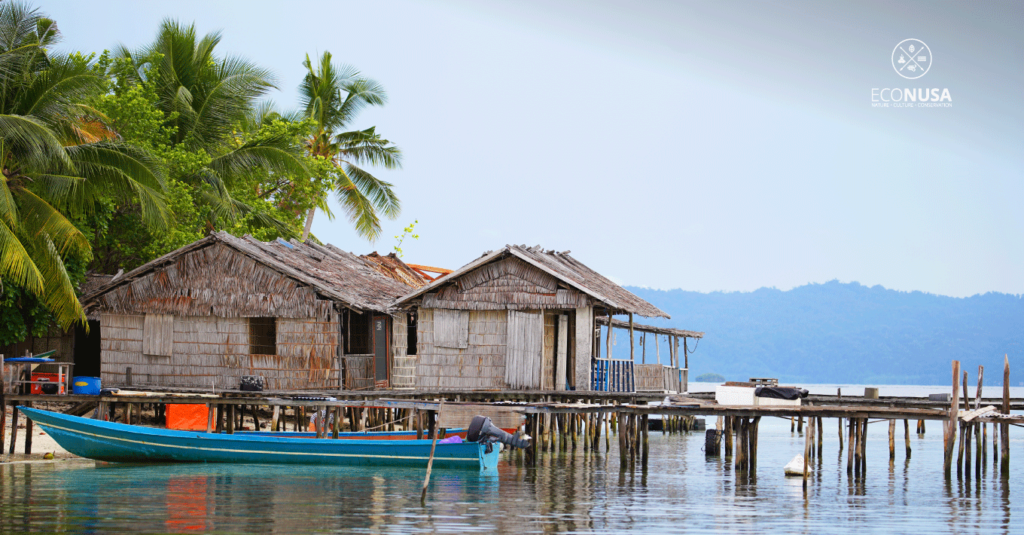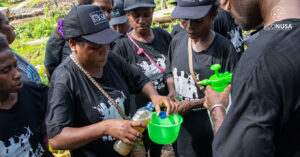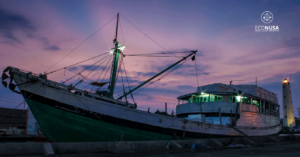
Global warming and climate change are among the threats faced today by the populations around the globe, including Indonesia. The report of Intergovernmental Panel of Climate Change (IPCC) with 195 countries as members stated that the earth temperature has been escalating by 1.1 Celsius degree since the 19th century. Without serious measure, in the upcoming 20 years, earth temperature will soar to 1.5 Celsius degree. The mounting earth temperature, among others, affects the increasing number of natural disaster, declining food supply, and causing health problems.
Ironically, only few people is aware of the condition here. Survey conducted by Indopol Suvey and Consulting on Public Perception to Climate Change Issue and 2024 Election Political Dynamic concluded that only 6.59 percent respondents are worried about climate change. The small number of public worries about climate change issue is led by the poor public knowledge on that issue.
“There is only 30.24 percent having that knowledge. The rests do not have any idea and have yet to show their stance,” said Ratno Sulistiyanto, the Executive Director of Indopol, in the discussion on Climate Crisis and Indonesian Coastal Community Resilience, Youth Voices for Change held by EcoNusa and Indopol Survey on Sunday 9 January 2022.
Read Also: Now or Extinct, Not Late to Mitigate Climate Crisis
The survey was conducted by Indopol on 19-27 November 2021. Data was taken by questionnaire with 1,230 respondents with ±2.8 percent of error margin and 95 percent reliability (Slovin). The respondents were of 17 years of age or married with multistage random sampling technique of which the respondents were proportionally taken from each province based on the Indonesian Population Projection in 2020 (BPS RI 2020).
This fact appears to be dissimilar with the results of Indonesians & Climate Change Survey conducted by Purpose Climate Lab in 2021. The survey involved 2,703 respondents from 27 urban and rural areas in Indonesia. In fact, 85 percent of respondents claimed that climate issue is important to their lives and even give direct negative impact to them (66 percent) and the next generation (74 percent).
The similar results were also generated from Indikator Politik Indonesia survey agency jointly with Indonesia CERAH Foundation on 6-16 September 2021 that concluded 82 percent of respondents understood and conceded their worries to ecological issues. It implies that there are still many who are aware of the adverse impact of climate change issues to environment and next generation, despite the many who remain unaware.
Read Also: Mangrove Rehabilitation, Government Attempts to Reduce Carbon Emission
Considering the survey results, EcoNusa’s Ocean Program Manager, Wiro Wirandi, said that Indonesia as the archipelagic country lives through the impact of climate change. “When the temperature is hot, the pole ice will melt down which leads to the rising sea water volume and affect the communities living on coastal areas,” he said.
In fact, the impact of sea level rise has affected the coastal communities according to the External Deputy of Wahana Lingkungan Hidup (Walhi), Edo Rakhman. With the rising sea water level, around 1 hectare plot of land is gone every year along the coastal areas in Demak, Central Java. The condition has submerged 4 villages in Demak.
The unpredictable weather and extreme wave caused by climate change have also led the fishers economy into hardship. They could merely put out to sea for 6 months a year. Within the other 6 months, they should shift their professions from fishers into unskilled workers or street hawkers to survive. If they sail during bad weather, they put their lives at risk. “One hundred fishers at average were missing or died in the sea every year upon sailing on bad weather,” Edo said.
Read Also: Charlie Heatubun: Forest is Irreplaceable
The condition will worsen if the climate crisis is not handled. As to Edo, by 2050, it is assumed that 199 regencies and mayoralties in Indonesian coastal areas will suffer from high tidal inundation every year and around 118,000 hectares of areas will be inundated by sea water. The disaster will put 23 million Indonesian populations at risk with an estimated Rp1,576 trillion worth state loss.
The impact of climate change has also happened at small islands in Maluku Province. The Coordinator of Moluccas Coastal Care (MCC), Teria Salhuteru, showed a footage depicting Banda Island when it was swept by typhoon last yearend. The high wave arising from that rough wind suspended fishers to put out to sea. She also showed the rising sea water level in Ambon after mangrove was cut out for café construction. “Economically speaking, the development is fine, but it ignores the impact,” Teria said. She also added, “Outsiders will think highly of Banda. But in fact, it is fragile. The community does not have knowledge on what happens to their environment.”
According to Ratno, to make the climate change issues more publicly known, green stakeholders should conduct socialization and campaign on this issue. “Doing this way will make public aware of the significance of climate change impact in the near future,” he said in the event attended by green communities, academic, and students here.
Editor: Leo Wahyudi




